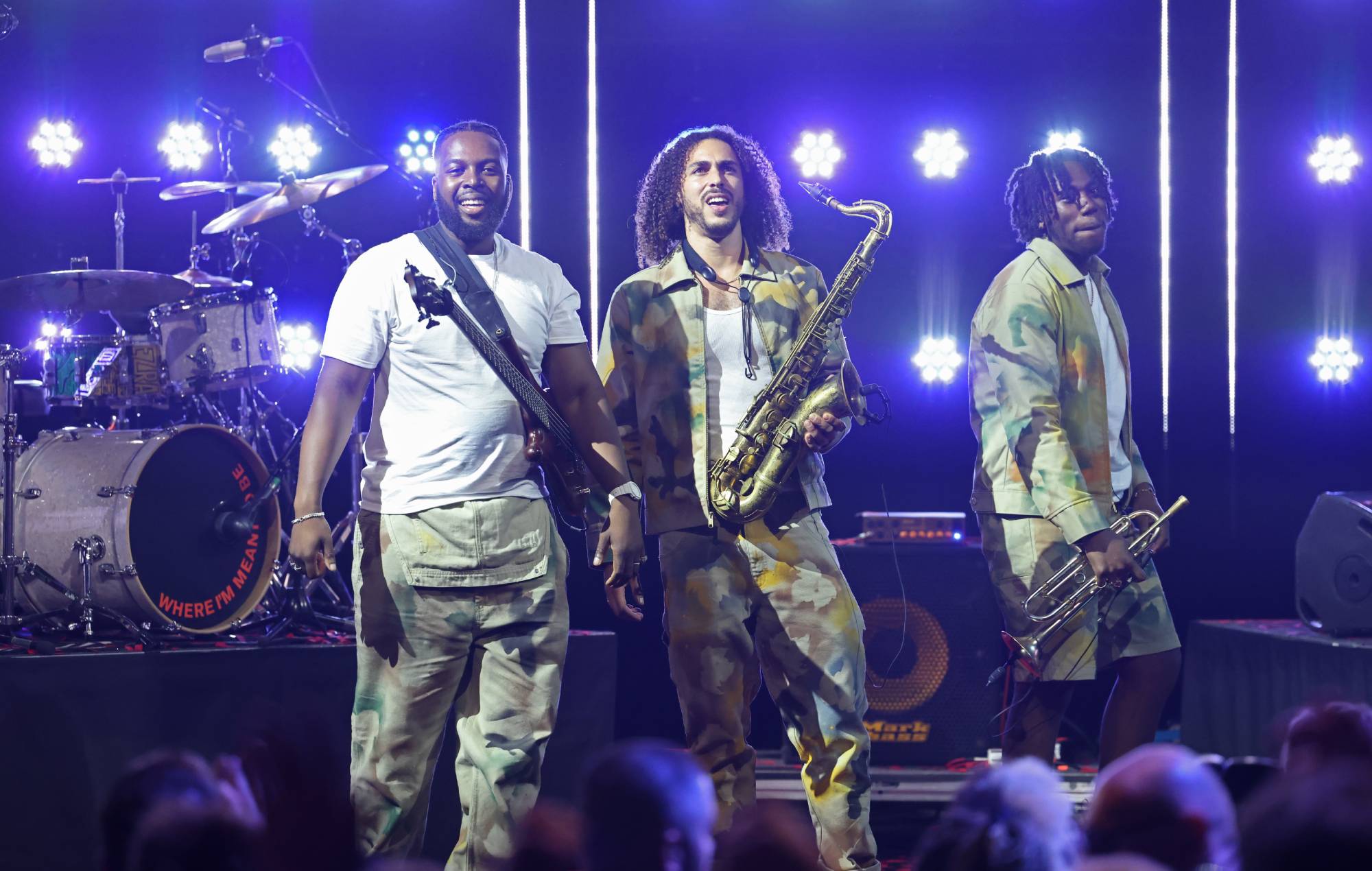Mercury Prize winners Ezra Collective on the need for music education in the UK
'Across the UK music industry, if we were going into schools and giving kids a little bit of time, I think we'd fix the problem,' says bandleader Femi Koleoso
By Nick Reilly

Fresh from their Mercury Prize win, Ezra Collective leader Femi Koleoso has told Rolling Stone UK why there needs to be more access to music education in the UK to create a pipeline of talent.
The North London band became the first ever jazz group to scoop the prize last night when they won for Where I’m Meant To Be, which was hailed by the judging panel as an “uplifting and timely record that represents the very best of where we are now in 2023”.
Speaking to Rolling Stone UK, drummer and bandleader Koleoso explained how the group’s friendship was formed at youth clubs and local music events that allowed them to hone their talents.
“I’m always about what can I do, what can Fems do? That’s the question I’m always trying to get that into everyone’s head. It’s looking at which school can I go in and teach drums? Which youth club can I donate a tiny bit of money to? These are the questions I’m asking myself and I feel like if across the UK music industry, if we were all thinking like that, going into schools and giving kids a little bit of time, I think we’d fix the problem.”
He added: “I don’t think it’s about the big corporate answer, I’m just thinking about grassroots ‘what can I do?'”
Koleoso also stressed the need for further musical education on the national curriculum.
“There was a recent statistic that said take-up of GCSE music had gone down dramatically in the last ten years. That to me is a tell-tale sign that music in schools is declining. If you’re thinking about situations where they can barely get maths teachers, science teachers and you know the attitude this country has towards the arts anyway, it doesn’t take a genius to see that the music budgets are being squeezed out of these schools.
“Rather than cry about it, I just think ‘OK cool’, what can I do to bridge that gap a little bit? What school can I go in myself? Do you hear what I’m saying? That’s the energy we want to bring as a band because we’re a product of that. If it wasn’t for the youth clubs we went to, this wouldn’t be happening right now. This moment wouldn’t be here right now. So that’s what it’s about.”
